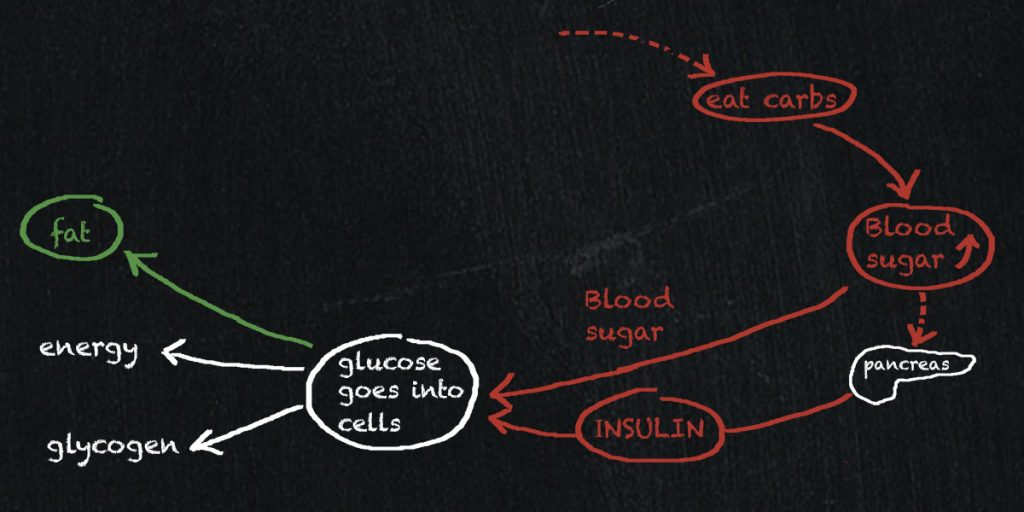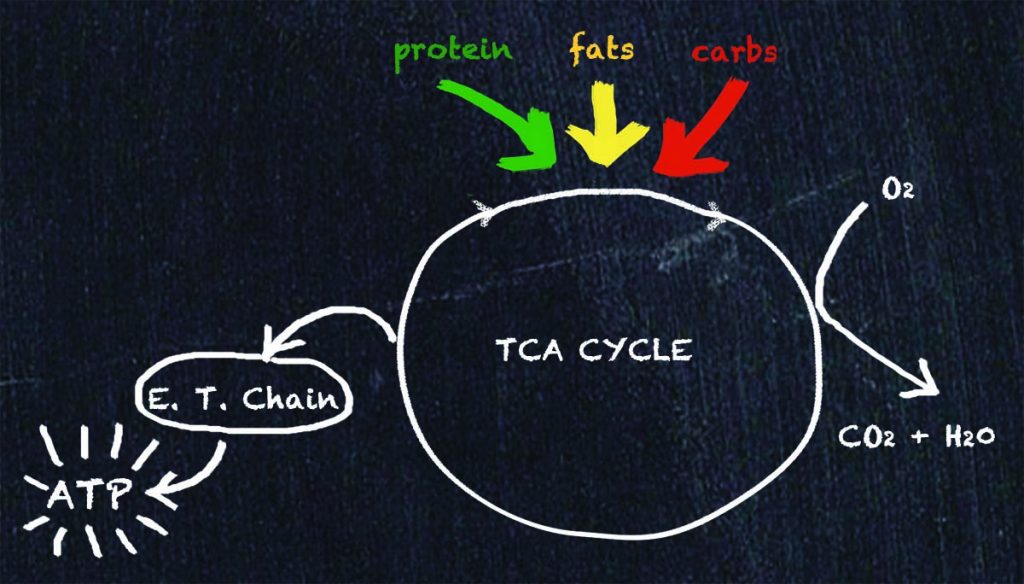As we saw in the last post, a valuable lesson can be learnt from the Biggest Losers: weight loss is not a matter of willpower, and certainly not a simple matter of eating less than you burn. In order to lose weight, you need to modify your metabolism. This is not easy, but it’s not impossible either.
It’s true that our body fat is regulated by several factors over which we have little control, such as genetics or past behavior, but there are steps that can be taken towards a healthier metabolism.
Note that being thin is not necessarily healthy, and that body fat is not necessarily a problem. It is the underlying causes of body fat that pose a health threat, as well as bringing the undesired fat.
Actually, all these causes are related to one and only one item: excessive blood sugar. We will explore a few of the mechanisms below, but there are many more.
1. Elevated insulin, a consequence of high blood sugar, puts the body in fat storage mode.
During digestion, carbohydrates are broken into simple sugars and passed into our bloodstream. The elevation in blood sugar causes the pancreas to produce insulin, a hormone that allows the cells to let sugar in.
The glucose (sugar) taken away from the blood and into the cells can be used to provide immediate energy. If energy is not needed, sugar is stored as glycogen. When the glycogen storage is full, the remaining glucose is stored as fat in fat cells.

Insulin activates the enzymes that enable fat storage and impairs the action of hormones that release fat from fat cells: high insulin signals that glucose (i.e. immediate energy) is available; fat is therefore not needed and should be stored for later use.
2. Elevated blood glucose induces the enzymes that favor using sugar for energy (and impairs the enzymes that are necessary for burning fat).
The bulk of our energy is generated through cellular respiration, a complex series of chemical reactions that take place in the mitochondria in our cells.

The body is a marvelously adaptable machine that can work with whatever it has. If there is a lot of glucose in the blood, the body will produce the enzymes to burn glucose for energy. If the body sees less glucose, it will generate the enzymes that burn the fat instead.
3. Elevated blood glucose next to fat cells locks the fat inside the cells.
Fat is travelling in the blood or stored in cells under the form of triglycerides.
The molecules in the fat tissue are in constant motion, crossing the cell walls into the blood stream and back. Since triglycerides cannot cross the cell walls, to go in and out of the cell, they are disassembled into free fatty acids and glycerol and reassembled into triglycerides on the other side of the wall.
This process is also regulated by the levels of insulin and blood sugar: insulin causes fat cells to take in glucose and burn it for fuel; this produces a glycerol-phosphate molecule, which in turn provides the glycerol molecule that binds with free fatty acids to create triglycerides.
Thus, burning glucose in the fat cells reduces the number of free fatty acids that can escape the cell and increases the proportion of fat locked as triglycerides inside the cell.
There are several more mechanisms that cause fat to be stored, all involving sugar. Very surprisingly, these facts have eluded most weight loss researchers for a century. Instead, the notion that eating fat makes you fat still prevails.
(To be continued…)
If you found this post interesting,
sign-up to be notified when there is a new post on our blog.
